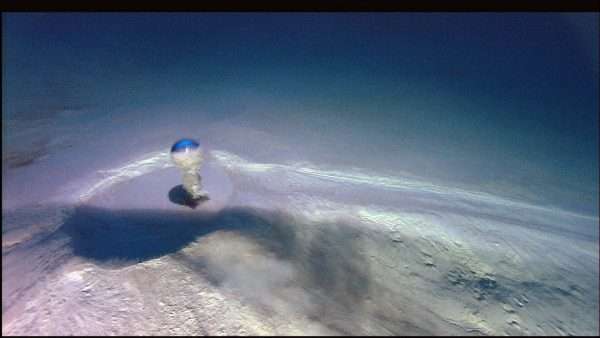3.5 percent of global methane deposits could be melted by 2100 due to climate change

A team of researchers from the Andalusian Earth Sciences Institute and the University of Cambridge has proven that 3.5 percent of the world's deposits of methane hydrate (equivalent to about 60,000 million tons of carbon) could begin to melt by 2100 due to climate change and the warming of ocean waters, a fact that would cause tons of this potent greenhouse gas to be discharged into the atmosphere.
This research, published in the renowned Nature Communications journal, has proven, through simulations, that in addition to known mechanisms, another previously unknown mechanism, osmosis, may play a key role in this event.
In addition to analyzing the theoretical understanding of this mechanism (osmotic pump), this work has for the first time highlighted the risk of under-studied climate change on methane hydrate deposits.
As explained by one of the authors of this paper, Julyan Cartwright, "There are places under the seas and oceans where methane from lower rock layers emerges. We often find huge deposits of methane hydrates—solid material containing methane, a potent greenhouse gas—within the seabed. However, we must better understand and analyze whether there is a risk that these deposits could be melted with climate change, thus discharging their methane to the environment."
Mud volcanoes and submarine seeps are phenomena in which fluids (water, mud, sometimes gas bubbles) emerge from the seabed. "Using fluid dynamics, we have calculated the forces associated with fluid flow of an emanation or a mud volcano," says Silvana Cardoso from the University of Cambridge (UK), an author of the paper.
More information: Silvana S. S. Cardoso et al. Increased methane emissions from deep osmotic and buoyant convection beneath submarine seeps as climate warms, Nature Communications (2016). DOI: 10.1038/ncomms13266
Journal information: Nature Communications
Provided by University of Granada


















